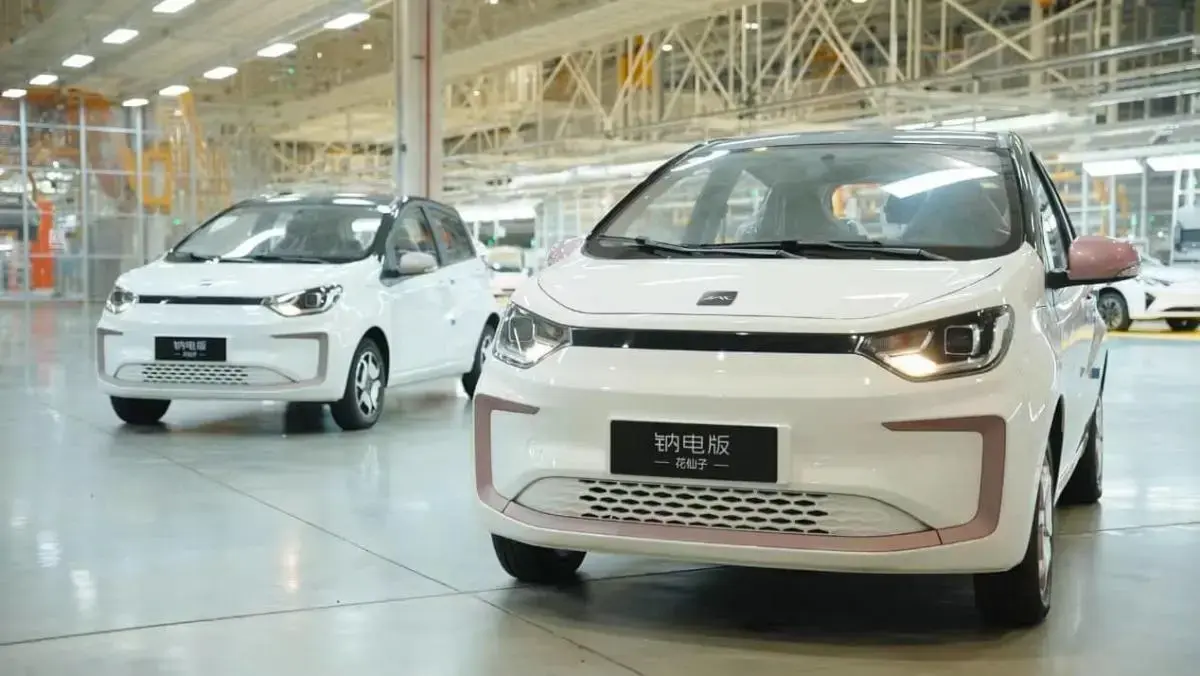
What new goalposts are conservatives going to throw up this time for why they need to keep using dinosaur fuels

I wish they would just say “I don’t want one” instead of trying to justify it with myths about lifetime emissions or whatever. It’s the same thing with SUVs vs station wagons or hatchbacks- just say “I want the big one” instead of trying to peddle myths about safety or something.

Exactly. They don’t actually care or believe anything about the emissions, they just want to demonize anyone who buys one. They just want the biggest trucks possible for god knows all the emotional reasons they have, and feel threatened that EVs may make their emotional support trucks obsolete.

A peacock sincerely wants to have the biggest and most colorful feathers possible. The fact that they are not useful and likely even counterproductive in its day-to-day life is irrelevant. The want is not fake at all.
It’s easy to imagine the peacock being jealous of some other, better-adapted bird that flies faster and needs to forage less. But since what the peacock WANTS is a big, lustrous, beautiful set of tailfeathers, it can feel better knowing the other bird does not have the things it wants. It can feel better mocking the other bird for its pitiful, puny tail.

Myths? Electric cars are not good for the environment, period, as their manufacture has huge impacts everywhere especially with lithium batteries.
The important thing that the conservatives miss is that all individual car transportation is horrible for the environment. Only public transit cuts emissions massively. That’s why electric cars exist. They’re not built to save the environment. They are built to save the car as a concept and means of individual transit. To keep consumers buying more cars and car parts rather than building and investing in public transportation.
What I find infuriating is how electric car makers lie in their advertising about how eco-friendly their vehicles are. They’re not, and they know they’re not, and they lie anyways because some people believe it.

I don’t think that really holds up in a realistic comparison. BEVs are better for the environment. Just not as good as walking, cycling, and mass transit. All of these supply chain analysis commentary about BEVs fail to do an apples to apples lifetime comparison with ICE vehicles. Battery technology and battery recycling will continue to advance as BEV become more mainstream. Battery technology also has significant wider impacts and implications that aren’t strictly limited to vehicles.
The oil industry alone causes tremendous environmental devastation simply extracting oil - not to mention the transportation problem. Large scale raw material extraction is never pretty no matter what the final product is.

Only public transit cuts emissions massively.
EVs cut lifecycle emissions to about 45%. [UCS][ANL][MIT][IEA]
Public transit cuts lifecycle emissions to… about 45%. [IEA][AFDC][USDOT]
Neither is a magic bullet. Both get their asses kicked by bicyles. Both get better with increased passengers per vehicle. Both can be fueled with renewable energy for additional reduction. Both can be manufactured with renewable energy for additional reduction. Both take surprisingly equivalent amounts of steel, aluminum, and glass.
Public transit offers unique advantages from an urbanist perspective and the liveability of cities, but that’s objectively different from emissions reduction.

The issue in the US is the frankly terrible mass transit system in a lot of smaller towns and rural areas. There is no way we are going to get that infrastructure anytime soon (not saying we shouldn’t get it underway, it will just take a while), so getting folks to EVs is a good interim. Plus there will always be people that need cars for specific jobs (my partner does home health as an example). EVs are certainly better for the environment than gas cars, even when you take into account the mining necessary. I’d rather have some progress than an all or nothing approach.

Does that mean less mining of toxic shit on the periphery and shit?

Short version: yes.
Long version: No lithium, no cobalt, usually no nickel, usually no manganese, and no graphite. I’m not sure what electrolytes will prove best, but multiple metal-oxide cathodes are viable (in addition to prussian-blue analogues), and the anode is just hard carbon (basically charcoal). The raw components are plentiful on every continent. Depending on chemistry, some of the steps are potentially toxic if mishandled (chromium oxide), but no one to my knowledge has raised any major red flags.

Thanks! !

If that thing can do 157 miles, I’ll eat my hat. It’s got a Leaf-sized battery in it, which was actually pretty efficient, yet struggled to hit 80 miles in good weather. Still glad to see it though.

The problem is that this is a Chinese automaker and things aren’t looking good between the Western world and China right now…

The batteries for the cars in this article are made by Farasis Energy, which is an American company. Northvolt also has their sodium program, and Natron Energy is already making stationary backup batteries. China will not have a monopoly on this tech.

I wish US car companies have more EV options. It’s Tesla (I’d never buy one), and a few other options (Hyundai, Kia have theirs). None are particularly attractive to me. The SUV styles available don’t interest me. I’m in Asia on vacation and the electric and hybrid options are amazing. I’d love a small car option with AWD. I’ll continue to drive my 10+ year old car until something interesting comes to market.

I really wish the VW ID.3 was sold here. I have an ID.4 and love it, but it is too big for a lot of folks

I didn’t know the id.3 is not available there. it’s crazy! I think you’ll get the fiat 500e, though. in Spain I see a lot of peugeot e208 and fiats

Hopefully the Fiat gets released here. There is also the electric Mini and the Leaf, but not a ton of options for small EVs.

Yes! That would be amazing!

I don’t know if it’s AWD, but I’m excited for the Fiat 500e coming to the U.S.

I love my Bolt. It’s cheap, small, and has great range. Not AWD but it does fine in winter thanks to the weight. I’ve had it for 3 years now.

I hope they release an updated Bolt with a little faster charging. It is great as a city car, but for folks that want to do longer trips 50kw is a little rough.

I haven’t had any issues with taking it on roadtrips. After 5 hours of driving, it’s nice to stop for an hour to stretch while it charges.

Fair. I’ve done road trips in a car that charges at 120kw and that seemed about as long as I would want to wait (about 30 minutes if it is super low).
The breaks are for sure nice though. I’m always surprised how less tired I am in long trips thanks to the charging breaks.


